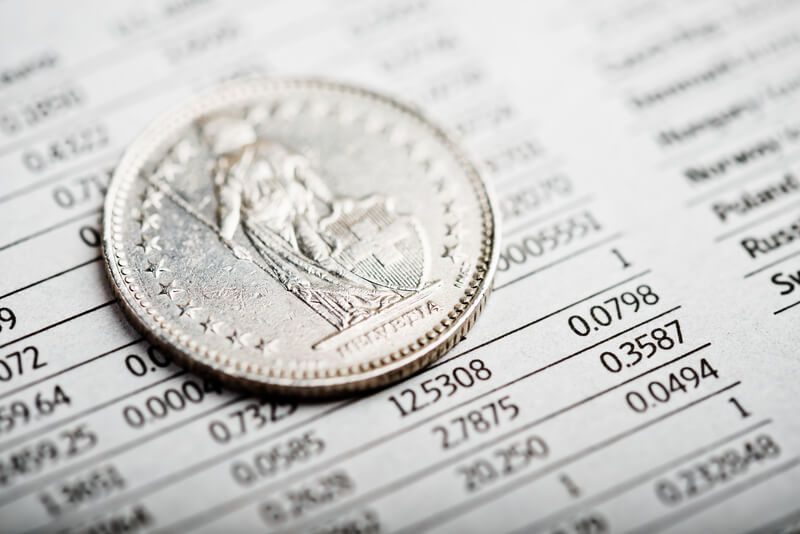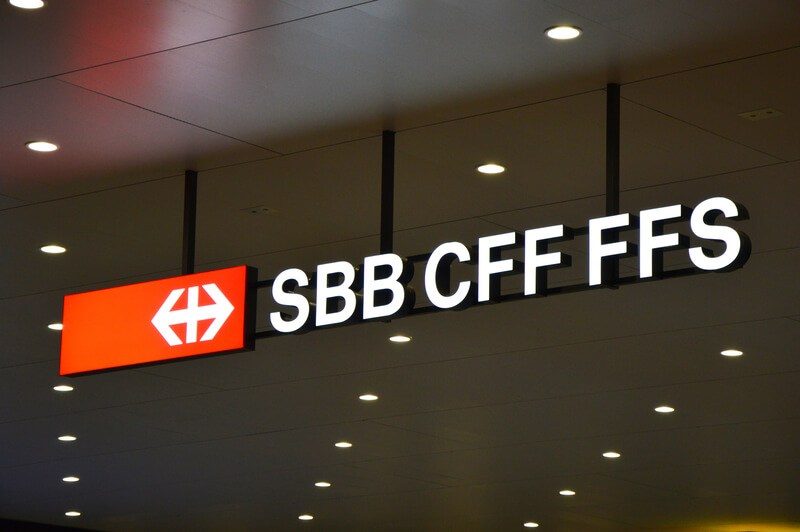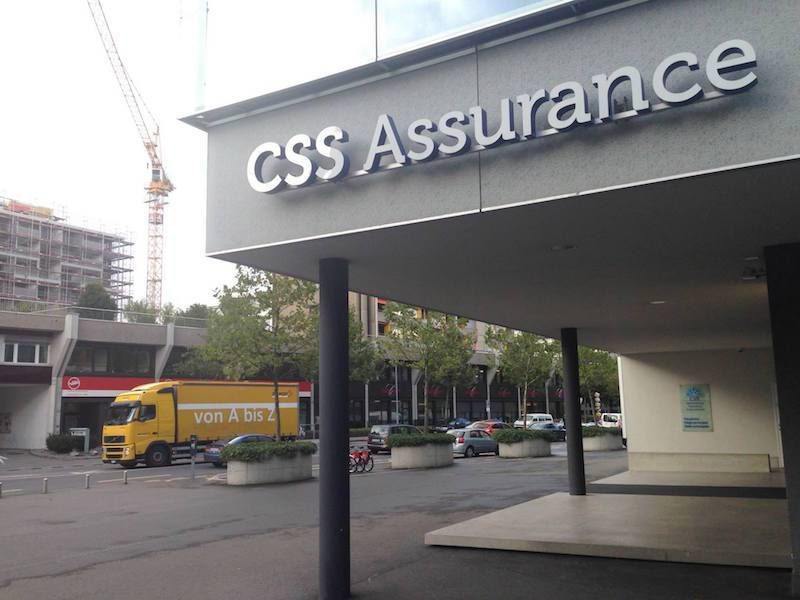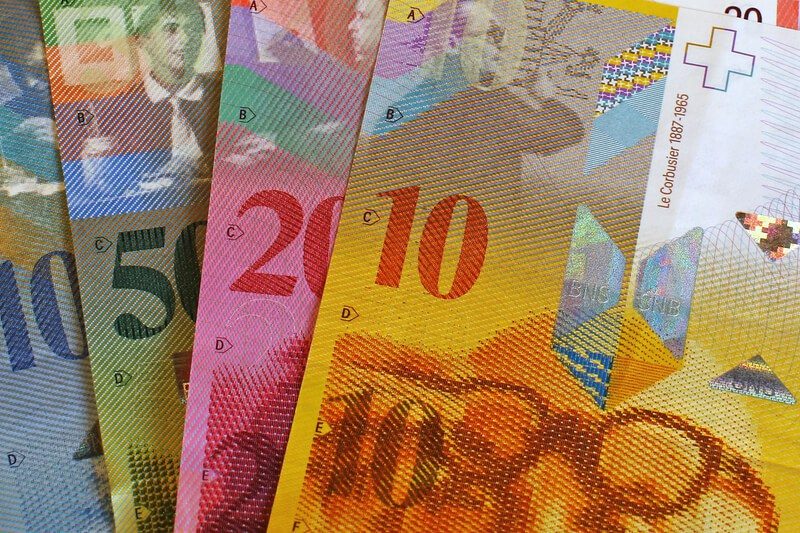Tag Archive: Personal finance
Switzerland’s vote to change its monetary system – sensible or silly?
Sometimes Swiss voters are presented with questions that only specialists are equipped to answer. The vote on 10 June 2018 to change their monetary system appears to be one of these. On the surface it appears simple. Upon closer inspection it contains much complexity and uncertainty, compounded by a widespread misunderstanding of how the financial system works – banks do not act simply as intermediaries, lending out the deposits that savers place...
Read More »
Read More »
Swiss Rail drops plan to put Wi-Fi in trains
Swiss Rail has dropped plans to install Wi-Fi in its trains, according to the newspaper Le Matin. After a survey revealed that customers would only use on-board Wi-Fi it was free, the company decided there was no justifiable way to cover the cost, according the the newspaper. Swiss Rail is not prepared to bear the costs the mobile operators would charge them for the service and cannot not justify adding the cost to ticket prices.
Read More »
Read More »
Disability welfare – fraud investigations expected to save 170 million
By January 2018, the number receiving disability welfare in Switzerland had dropped to 217,200, 40,300 fewer than in 2006 when the number reached a record 257,500. Switzerland’s Federal Social Insurance Office (FSIO) attributes the reduction to an occupational rehabilitation programme started in 2008, and disability welfare fraud investigations.
Read More »
Read More »
Child care tax deductions set to rise in Switzerland
Switzerland’s Federal Council, or cabinet, plans to increase the maximum annual deduction for child care costs to CHF 25,000 per child, up from CHF 12,100. This would allow parents to deduct up to this amount from their income for federal tax purposes but would not affect canton and commune taxes. Deductions could not exceed the amount spent.
Read More »
Read More »
Internships – Switzerland’s Young Socialists caught preaching one thing and practicing another
In collaboration with the Swiss union Unia, Switzerland’s Young Socialists have launched a protest against the exploitation of interns. To get on the career ladder, many young people feel compelled to take internships offering little or no pay. The Young Socialists are demanding interns be better paid. Recent data from the Federal Statistical Office shows that 23% of young workers (15-24) are on short-term contracts, 41% of them interns.
Read More »
Read More »
Switzerland most expensive for meat
Switzerland has the world’s most expensive meat according to a survey compiled by Caterwings in Germany. The survey, which looks at meat prices in 52 countries, ranks Swiss prices at the top across all meat categories. On average, Swiss shoppers pay 142% more than the average across all meat categories.
Read More »
Read More »
Some Swiss train fares to fall in June
This week, ch-direct, an association of public transport providers that sets ticket prices, announced there would be no ticket price rises in 2019. Instead the prices of some tickets will fall slightly on 1 June 2018. The price small cuts on standard fares in June relate to the shift from 8.0% to 7.7% VAT at the beginning of the year.
Read More »
Read More »
Taxes – one in seven in some Swiss cantons has unpaid tax
The cantons of Neuchâtel (14.7%) and Geneva (14.6%) have the highest percentages of taxpayers owing money, according to the newspaper SonntagsBlick. Fribourg (12.6%), Bern (9.5%) and Luzern (6.5%) complete the top-five. Vaud (5.9%), Basel-City (5.5%) and Zurich (2.4%) are further down. Aargau (2.0%) and Uri (1.0%) sit at the bottom with fewest with oustanding tax payments.
Read More »
Read More »
Healthcare costs rise further in Switzerland
Statistics published today show a further rise in Swiss healthcare costs. In 2016, spending on healthcare rose by 3.8% reaching over CHF 80 billion, 12.2% of GDP. In 2015, Swiss healthcare spending was equal to 11.9% of GDP. The challenge of rising healthcare costs is not confined to Switzerland. In the UK in 2015, healthcare costs rose 3.6% to reach 9.9% of GDP.
Read More »
Read More »
Insurance boss suggests Swiss health insurance deductibles of 10,000 francs
Philomena Colatrella, the CEO of Swiss insurer CSS Insurance, has stirred the lively debate around Switzerland’s rising cost of health insurance by proposing deductibles of CHF 5,000 and CHF 10,000 – deductibles set the amount people pay out of their own pockets before their insurance kicks in.
Read More »
Read More »
Swiss welfare recipient made to repay 173,000 francs
In some parts of Switzerland welfare payments are effectively loans that must be repaid when the recipient’s financial situation improves. According to the Aargauer Zeitung, a welfare recipient in the commune of Klingnau in the canton of Aargau received a bill of 173,000 francs after he came into some money. A windfall of 173,000 francs is rare, according to Rolf Walker, head of administration at the commune.
Read More »
Read More »
Food consumes far less of Swiss budgets than it did 25 years ago
Comparing the most recent statistics on Swiss consumer inflation to those in 1993 reveals a steep drop in the percentage of spending allocated to food. When statisticians calculate consumer price rises they look at the prices of a standard basket of goods. In 1993, food and non-alcoholic beverages made up 14.3% of the value of this standard basket. By 2018, the percentage had fallen to 10.4%, a 27% drop.
Read More »
Read More »
Tax and spend – canton of Geneva generates a surprise budget surplus
When Geneva’s finances make the news it is typically bad. At the end of 2016, the canton had debts of CHF 12.5 billion, equal to 153% of its income. In January 2018, the rating agency Standard and Poors gave Geneva a negative outlook citing risks related to the canton’s poorly funded public pension scheme.
Read More »
Read More »
Swiss government set to remove ‘mariage tax penalty’
In Switzerland, married couples file one combined tax return. Because tax rates rise in line with income it means that second incomes of married couples are taxed at a higher rate than those of single cohabitating ones. Those campaigning to have this changed argue that it is unfair and acts as a disincentive for second income earners.
Read More »
Read More »
Raising Switzerland’s retirement age – like death and taxes
Last week, State Councillor Peter Hegglin (PDC/CVP) withdrew his motion demanding Switzerland’s retirement age automatically rise with life expectancy. He argues that Switzerland urgently needs to find a way to ensure the financial health of its pension system and raising the retirement age is the main way to do this.
Read More »
Read More »
Switzerland’s parliament rejects plan to cut health insurance discounts
Switzerland has a system of compulsory health insurance. Residents must choose an insurer and pay. Those who don’t are automatically signed up and sent a bill. Other than shopping around, choosing a policy with an excess, a sum that must be covered out of your own pocket before the insurance kicks in, is one of the few ways to reduce your premium.
Read More »
Read More »
Switzerland – a definition of middle class
A recent survey calculates 60.1% of Switzerland’s population was middle class in 2015, a figure that has remained broadly stable since 1998, reaching its highest in 2009 (61.3%) and lowest in 2013 (56.8%). But what is middle class in Switzerland? According to Switzerland’s Federal Statistical Office, it is anyone living in a household with a gross income between 70% and 150% of the gross median income.
Read More »
Read More »
Swiss politicians with links to health sector can still fully participate in health commissions
Lukas Reimann, a parliamentarian and member of the Swiss Peoples Party (UDC/SVP), fought to have parliamentarians paid by health companies partially excluded from government commissions dealing with health issues. He thinks vested interests are behind high health premiums and that cartels must be broken.
Read More »
Read More »
Swiss federal finances – surplus of billions in 2017
While many national governments, such as the US and UK, regularly spend more than they collect, Switzerland managed a CHF 2.8 billion surplus in 2017. In addition, CHF 2 billion of withholding tax is expected, which would push the surplus up to CHF 4.8 billion.
Read More »
Read More »
Vaud – vote on divisive dental tax and care plan
On 4 March 2018, voters in Vaud will vote on a plan to provide basic universal dental care funded by a tax on salaries. The initiative entitled: Reimbursement of dental care, Pour le remboursement des soins dentaires in French, claims that 10% of the population avoid the dentist because of the cost. They also claim links between poor dental health and cancer, diabetes and premature births. Their plan envisages the creation of a network of...
Read More »
Read More »




















































